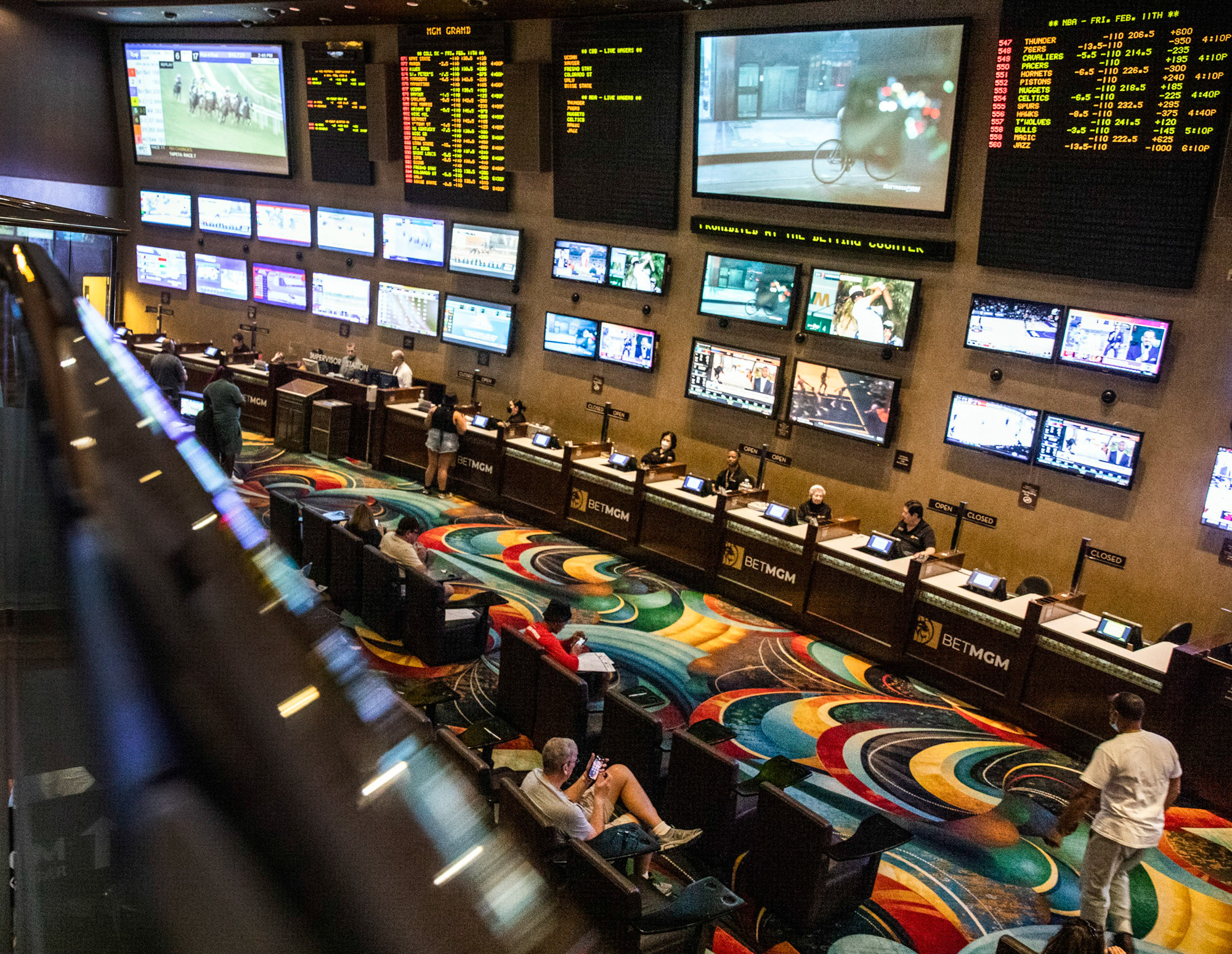At a time when legalized sports betting enjoys unprecedented expansion and acceptance across the country, an illegal bookmaking story is making some of the biggest headlines.
Fallout from the federal criminal investigation of illegal bookie Wayne Nix continues to shine an uncomfortable light on the long association between professional athletes and illegal bookmakers. Before his Sand Island Sports website was brought down, Nix and partner Edon Yoshida Kagasoff made millions and attracted high-profile clients from the professional sports world. Both men have pleaded guilty with Kagasoff receiving a sentence in July of six months of probation, a small fine, and agreeing to forfeit $3.16 million in illegal profits.
For a time, there were plenty of illegal profits to go around. Two of Nix’s customers cashed at least $18.3 million in checks at Sherman Oaks Check Cashing, according to the government. The check-cashing company, accused of failing to file the appropriate currency transaction reports, pleaded guilty to failing to maintain an effective anti-money-laundering program.
Nix, meanwhile, has a sentencing hearing before U.S. District Judge Dolly M. Gee in California’s Central District scheduled for March 6 after pleading guilty to a single count of conspiracy to operate an illegal gambling business and one count of subscribing to a false tax return in a case generated by Homeland Security Investigations agents. His illegal bookmaking operation was in business for nearly two decades, according to the government.
Unlike most illegal bookmakers, former minor league ballplayer Nix kept a high profile and mixed easily with professional athletes. Among his clients, authorities allege, was former Major League Baseball player Yasiel Puig, who now finds himself accused of lying to federal agents during the NIx investigation. Puig has a trial date scheduled for Jan. 16.
This week, as The Washington Post first reported, a business partner and friend of Los Angeles Lakers star LeBron James was linked to the Nix investigation. Maverick Carter was interviewed by federal agents in 2021 and admitted betting with the illegal bookmaker, according to law enforcement records cited by The Post.
In a statement to the news outlet apparently meant to send a reality check, a spokesman for Carter said, “In 2021 and before 38 states and the District of Columbia legalized sports betting, Maverick Carter was interviewed a single time by federal law enforcement regarding their investigation into Wayne Nix.” For the record, Carter told investigators he didn’t remember placing bets on Lakers games.
But Carter’s close tie to one of the greatest players in NBA history adds a certain sizzle to the story and raises the issue of whether it’s appropriate for the partners and pals of professional athletes to gamble with illegal bookmakers. It’s not so much a question of illegality as it is optics.
Set aside for a moment that the scale of professional sports as we know it wouldn’t exist without illegal (and now increasingly legal) bookmaking. It’s a simple truth, just not what we’ve been comfortable talking about in front of the children and the pennant-waving fans.
The investigation has also revealed other pro athletes who gambled with Nix, former Chicago Bulls forward and NBA Hall-of-Famer Scottie Pippen among them. Pippen’s longtime teammate, Michael Jordan, has made plenty of headlines for his own gambling forays on the golf course and in the casino, but thus far there’s no indication that he was a customer of Nix.
Those wondering about the timing of The Post story might be interested to learn that one of the key figures in the Nix investigation, Sand Island Sports bookkeeper and accountant William Eric Fulton, saw his Nov. 29 sentencing date for a conviction of lying to federal investigators pushed to March 5. Fulton, according to HSI, “knowingly laundered Nix’s illegal gambling proceeds by continuing to transfer money between accounts, issue checks and wires to Nix’s gambling clients who won large bets, and helped Nix obtain bank loans to facilitate the gambling business.” The entertainment industry accountant also made quick, stopgap loans when Nix ran short at pay-and-take time.
The bookkeeper Fulton is a favorite to know all the intimate details of Nix’s business, including his clients, allies in illegal bookmaking from Fort Lauderdale to Las Vegas, and anyone he dealt with in the licensed and legal end of the bookmaking and casino fraternity.
Earlier this year, multiple sources confirm, federal agents based in California were in Las Vegas investigating leads still coming from the Nix case. The feds were trying to determine whether current or former Las Vegas casino employees at MGM Grand and Resorts World Las Vegas acted as agents on Nix’s behalf, and whether they paid the illegal bookie with house promotional chips usually reserved for preferred casino players. It wouldn’t be the first time Las Vegas casino executives were found to have abused promo chips and associating with illegal bookmakers.
But in a licensed and regulated industry that has long drawn scrutiny from the Internal Revenue Service, it’s not a good look.
That’s the trouble with the Nix bookmaking scandal. As it widens, it has the potential to do a lot more than embarrass a few ballplayers and their business managers.
John L. Smith is an author and longtime columnist. He was born in Henderson and his family’s Nevada roots go back to 1881. His stories have appeared in Time, Readers Digest, The Daily Beast, Reuters, Ruralite and Desert Companion, among others. He also offers weekly commentary on Nevada Public Radio station KNPR.

